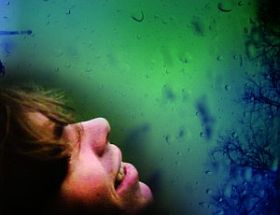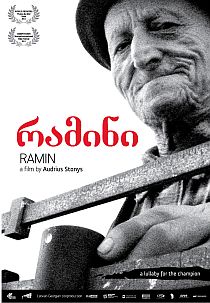We hear soft piano music, projector clicking… “My family came to America fleeing persecution. […] As children, my brothers and I were taught that we were the lucky ones who made it out. But with that luck came responsibility. “Never again” didn’t just mean that people like us should not suffer. It means, others should not suffer either.”
With these lines opens the film by New-York based documentary filmmaker Eugene Jarecki, The House I Live In. Fragments of his personal memory deftly stitched together with collective memories primarily drawn from the public archival footage and interview material, The House I Live In captures heart-wrenching stories of those on the frontlines of the American longest war – the war on drugs. While America is concerned with overseas conflicts, a tacit war is taking place at home, effacing lives of its own people and inflicting damage on the society at large.
A recepient of the Grand Jury Prize at the Sundance Film Festival 2012, The House I live In does not shine away from the complexity of the given issue; in fact, I believe, it embraces it. From the dealer to the grieving mother, from the inmate to the federal judge, from the addict to the physician, the film lays forward a patchwork of stories of all involved in this war. But as stories of personal struggles begin to transpire, the very problems associated with drug abuse start to seem just one part of an even larger problem facing the country. I reckon, the film brilliantly puts the American drug problem into a socio-historical and economic context, prompting us not to ignore it at our peril. In a tightly knotted sequence of interviews, the documentary portrays young yet smothered by life people from the improverished neighborhoods, barred from proper education, healthcare benefits, or employment; hence they are eventually trapped in the painful self-perpetuating cycle of illegal drug abuse.. As one advocates in the film, “when groups are denied access to the core economic engines in a society, they create their own out of prohibited economies.” Akin, the protagonists of the film work for the only company that exists in their company town – the streets.
The impressive statistics dropped mid-way into the film, stating that since 1971 the war on drugs has cost over 1 trillion dollars and resulted in more than 45 million arrests, yet during that time the illegal drug abuse has remained unchanged, are ostensibly there to demonstrate the ineffectiveness of the law enforcement policies. Because it is treated in isolation as a legal issue, the war on drugs has dramatically escalated and created havoc
over the course of this crusade. The House I Live In throws a spotlight on the ugly b-side of the American present criminal justice system and interrogates its usable past by tracing back the origin of the anti-drug laws in the US. Hastily hopping through the decades of the American anti-drug policies somehow leaves the viewer unsatiated and compels to long for a more thorough examination of the issue at hand. Overall, however, the film does the job well in informing the viewer about the origin of certain anti-drug policies that serve as a precedent for control of minorities in the socio-economic and political order of things, be it racial, class, or other.
The film raises another important question, “if law enforcement is visibly a failure in eradicating the drug problem, why is it still on a go?” As the film speculates on the whole prison-industrial complex, we learn that all sorts of people have a vested interest in keeping the system going. For instance, the police have certain financial incentives in mass incarceration of non-violent, low-level drug offenders since the police base pay depends on mere statistics. Far from the frontlines of the “war”, there is a whole range of corporations, i.e. gun manufacturers, private health care providers, phone companies, and whole communities that depend on prisons as their primary employer, hence they are deeply invested in the system of mass incarceration, too. “It is a self-fulfilling prophecy. You cannot stop it; you cannot afford to stop it.” The prison-industrial complex and tough-on-crime stance thus virtually guarantee the overwhelming number of non-violent, low-level drug offenders getting long sentences or life without parole.
The House I Live In addresses a broad array of private and public aspects and perspectives on the war on drugs in the US. While it certainly does overwhelm at times, the film succeeds in bringing to light the corrosive effects of misguided public policies, which are shaped by certain political or economic incentives. Apart from the sophistication of its telling, the film is brazen and thought-provoking. This social commentary delivered in the form of a docu-essay does not take a soft-shoe approach to the issue, which I appreciate. Instead, it pushes past social boundaries evoking the dimension of collective memories and centering social conditions and failure of law enforcement and misguided public policies. While I find the statement that denotes the war on drugs “a holocaust in slow motion” a bit far-fetched, I do understand that such a strong rhetoric might deem necessary in an attempt to overcome the legacy of bigotry, transcend structural impediments deeply entrenched in the society, and hopefully “transform a dungeoun of shame to a haven of dignity.”
And as one said, we have to look at the big picture because “[…] people out there in the streets, it is not a problem – it is a manifestation of a problem. It is simply a symptom. It is sort of like saying that the problem with pneumonia is cough. Let’s suppress the cough, and that’s okay. Well you can suppress the cough but lung will be still inflamed…”
USA, 2012, 105 mins.





